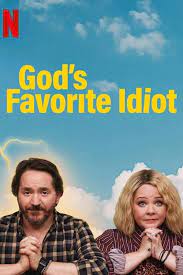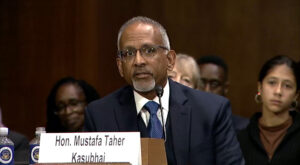For Your Possible Enjoyment:
Three B and B+ Netflix Mini-Series
My tolerance for junk-food movies and TV dramas has ebbed over the years. These days, if it feels junky at the 5- or 10-minute mark, I shut it off.
When I see things that are especially good, I recommend them to you. But when they are a bit less than that – Bs or even B+s – I don’t.
That doesn’t mean they aren’t good. Bs and B+s are, by definition, good. But are they good enough to recommend? Thinking about this yesterday, I had to concede that the difference between a B on my scale and an A- on another’s may be very small. So here are three mini-series that I’ve watched and liked in the last six months that you may like even better.

Lunatics
Season 1, 10 episodes
Episode 1 premiered April 19, 2019
The Plot: Chris Lilley stars – as six characters – in this mockumentary series that he also created and wrote. It explores the lives of six extraordinary individuals who may not be what they seem. The subjects are observed over a period of months through documentary-style interviews and a combination of self-recorded and fly-on-the-wall footage. While they are eccentric and odd, they are also scarily recognizable.
My Rating: B+
My Comment: Chris Lilley was new to me. He’s a very smart comedic writer and an engaging, likeable actor.
You can watch the trailer here.

God’s Favorite Idiot
Season 1, 8 episodes
Episode 1 premiered June 15, 2022
The Plot: Mid-level tech-support employee Clark Thompson falls in love with co-worker Amily Luck at exactly the same time as he becomes the unwitting messenger of God, filling his world with roller skating, a lake of fire, and an impending apocalypse.
My Rating: B-
My Comment: Like Lunatics, an ensemble comedy series with likeable characters. And like Lunatics, it’s funny, but not wickedly funny.
You can watch the trailer here.

The Girl from Nowhere
Season 1, 13 episodes
Episode 1 premiered Oct. 31, 2018
Season 2, 8 episodes
Episode 1 premiered May 7, 2021
The Plot: Nanno is a mysterious and clever girl who should be avoided. She transfers to different schools, and when she lands at a new one, she exposes the lies and misdeeds of the students and faculty. The girls Nanno encounters often want to try to destroy her, but she always has the upper hand. When a student with a girlfriend gets mistakenly linked to Nanno, he becomes a social media sensation. After the truth about Nanno’s high school life is revealed, she makes sure there are no happy endings.
My Rating: B+
My Comment: I was torn between a B and a B+. I went with the B+ because of how interesting the idea of the plot is. This is essentially a high-school mean-girl story. But different from the way it is treated in the US, where the revenge is having the cute guy fall in love with the heroine, The Girl from Nowhere is about a girl who avenges her high-school tormentors 10 years after graduation.
You can watch the Season 1 trailer here.
You can watch the Season 2 trailer here.










